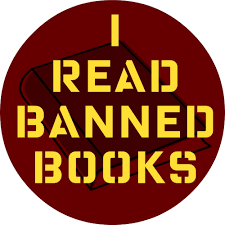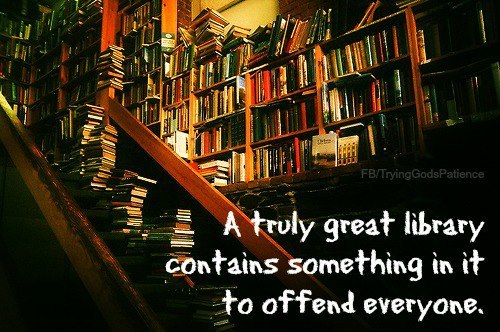We all know that Cassy and I are big fans of supporting Banned Books Week, because it is wrong to impose your own views on others by taking away their ability to read a certain book that you disagree with. And we also know that Cassy has kept you on top of which books are the most banned/challenged each year. But how do books wind up on that list? I'm here to tell you how.




Fun fact: The ALA's Intellectual Freedom Committee is just as old as Cassy and I (it was formed, like us, in 1986). They do a lot of important things, but the relevant one for this post is working with the Office of Intellectual Freedom (established in 1967) on issues related to censorship.

The OIF collects two types of reports on banned/challenged books. They keep an eye on media to see what gets reported in the news. They also accept reports from individuals: librarians, teachers, students, anyone who knows about a book that has been banned or challenged and wants to make sure the ALA knows about it. If you are someone who wants to make such a report, the form is here.
The OIF also offers support for the people defending such a challenge (usually librarians and teachers). On that page, you can find information and guidelines for dealing with authorities, the public, and the initiator of a challenge, among other useful tips.
So that's really all it takes... someone complains about a book being on a shelf or in a classroom, the institution being complained to makes a decision, and someone hopefully reports the challenge (or, worst case scenario, the ban) to the ALA to make sure it gets counted for the year. But don't feel too bad... the books that get challenged usually grow in popularity, especially around the end of September...


































